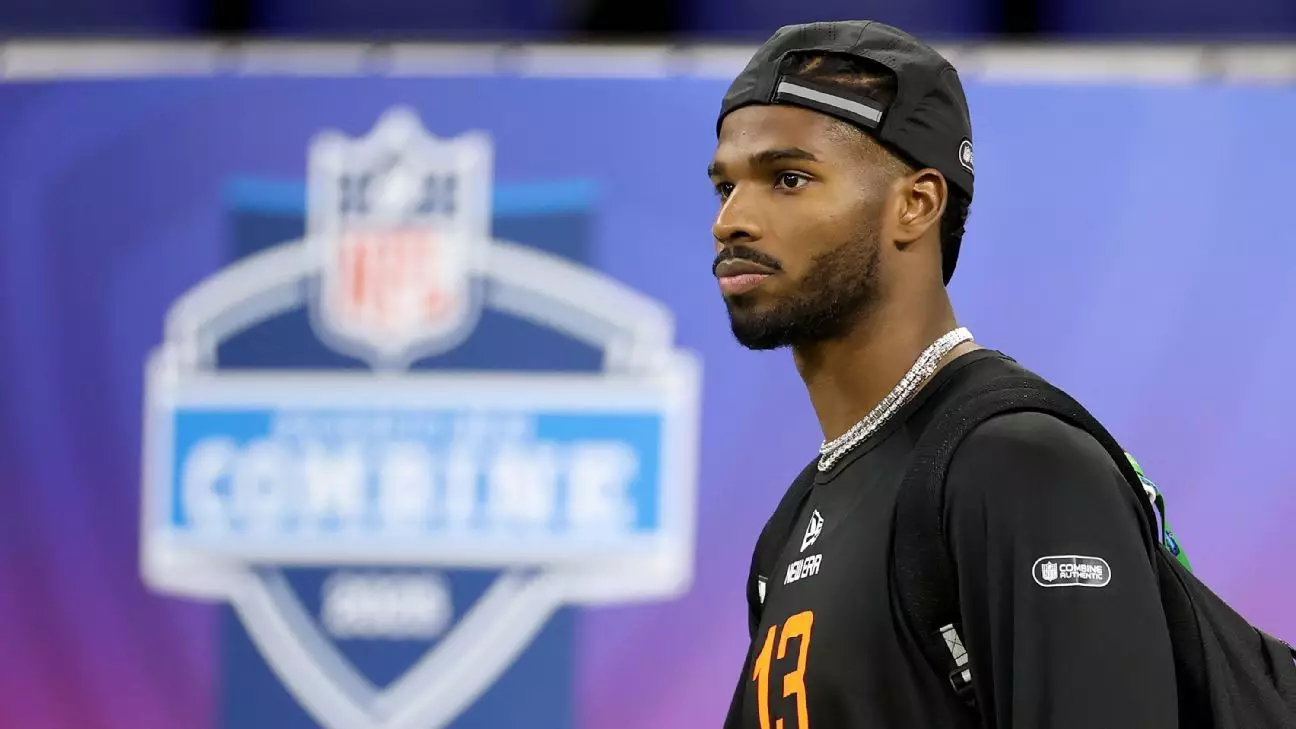The NFL Draft is one of the most momentous occasions in a player’s life; it signifies the culmination of years of hard work, dedication, and sacrifice. However, what should have been a day of joy for Shedeur Sanders quickly turned ugly due to an immature prank executed by Jax Ulbrich, the son of Atlanta Falcons defensive coordinator Jeff Ulbrich. This incident not only put a spotlight on the misbehavior of a young adult but also prompted deeper concerns surrounding privacy and respect in the world of professional sports.
The prank call itself was deeply unserious. At a time when Sanders was anxiously waiting to be called during the second day of the draft, Ulbrich impersonated New Orleans Saints GM Mickey Loomis, telling him he would be taken with the next pick. The laughter, camaraderie, and cheers surrounding Sanders were abruptly interrupted by this act of folly. The implications of such actions transcended mere embarrassment; they touched on the existential question of how a young person perceives boundaries, respect, and the weight of their actions.
Lessons in Accountability
Jax Ulbrich attempted to take accountability when he issued an apology on Instagram, stating that his actions were “completely inexcusable, embarrassing, and shameful.” While it’s commendable that he recognized the gravity of his mistake, the utter ridiculousness of the act raises questions about his judgment and the need for a more profound understanding of consequences. If a 21-year-old can make such a thoughtless decision with little regard for its ramifications, it speaks to a broader issue about accountability among young people in a position of privilege.
The Falcons organization’s quick response involved facilitating an apology and stating their disapproval of Ulbrich’s behavior. By doing so, they subtly reinforced the notion that reckless actions will not be tolerated, but this raises the question: Is enough being done to educate young athletes about the weight of their choices? Professional sports figures possess an unparalleled ability to influence society, and it is crucial to instill values of respect and honor within such individuals.
The Role of Social Media in the Fallout
Social media played a pivotal role in amplifying the prank and its aftermath. A video capturing the moment Sanders received the prank call went viral, pulling a rabbit hole of severe scrutiny toward not only Ulbrich but also the Falcons franchise. The immediacy of social media often invites further chaos in situations like this, turning a prank into a sensationalized issue.
Though the ramifications of Ulbrich’s foolhardy joke may fade, they serve as a stark reminder of how actions are instantly documented and dissected in the digital age. It raises pressing questions about the responsible use of technology and the ethics behind privacy. The NFL is investigating how Sanders’ private number was leaked, prompting discussions about safeguards for young players, who should have the right to privacy and respect during such significant life milestones.
Mixed Reactions from Sanders and Others
While Jax Ulbrich’s actions garnered widespread criticism, Sanders himself displayed a level of maturity that defied the childishness of the prank. He expressed that it didn’t impact him emotionally and exhibited a commendable ability to move past negativity. This reaction speaks volumes about his character and his steadfastness in the face of unprofessional behavior. Sanders labeled the call as “childish,” yet he also displayed a level of understanding—after all, everyone makes mistakes.
Other draftees, including Tyler Warren and Chase Lundt, mentioned they, too, received prank calls, reflecting a concerning trend that seems to have infected the draft process. The sheer randomness of such jests reveals an unsettling culture in the sports community, where boundaries are continually tested, and respect seems to be increasingly disregarded.
As the Falcons organization reviews their protocols surrounding privacy, the true essence of the incident continues to linger in the air. It brings forth a conversation about ethics in sports, the responsibilities that accompany privilege, and the essential need for a culture that discourages negligence and promotes accountability in every aspect of athletic life.

